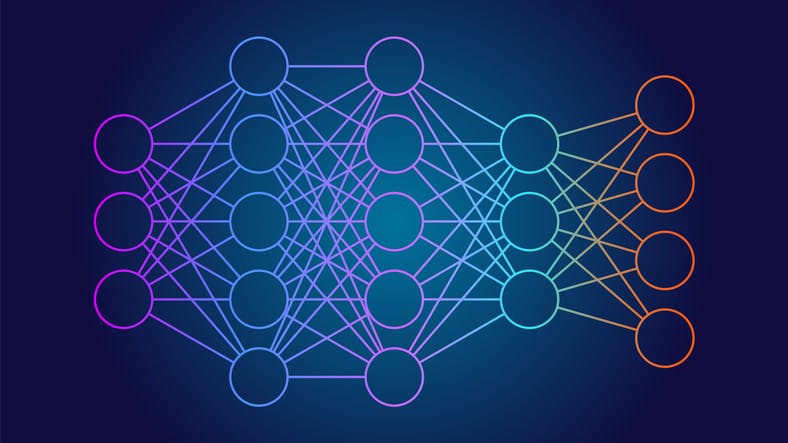Maximized quality control is one of the biggest concerns for field operations managers. They strive to limit errors and defects that lead to costly on-site revisits and undermine productivity. It is becoming clear now that manual quality control is falling short in terms of accuracy, speed, and flexibility, preventing organizations from reaching a superior first-time right score.
At a time when generative AI is invading all areas of the company, it is interesting to understand how and why today, traditional deep learning, also called discriminative learning, is surpassing generative AI when it comes to quality control automation in field operations. Computer vision, a branch of artificial intelligence that enables machines to interpret and make decisions based on visual data, plays a crucial role in this transformation.
The efficacy of deep learning technology hinges on three crucial elements that make it essential for this type of application.
Below, we’ll highlight what they are and how these elements are transforming the future of quality control automation in field operations.

Best-in-class Accuracy in Defect Detection
Discriminative AI models leverage deep neural networks to achieve accuracy rates as high as 99.9%. This game-changing technology empowers field operators to detect anomalies with unprecedented reliability. These algorithms mimic the neural networks of the human brain, enabling them to learn and recognize complex patterns with high precision.
The high accuracy of these models is due to several key factors. First, they are trained on vast, qualitatively labeled datasets, allowing them to recognize specific patterns and defects with high precision. Second, the latest evolutions of convolutional Neural Networks (CNN), a type of deep learning neural network that processes images in a grid-like manner, have drastically improved performance levels.
Finally, as more data is collected, the deep learning models can be retrained to refine their accuracy over time and adapt to new conditions. Additionally, these deep learning techniques help to minimize false positives and negatives, ensuring that only genuine defects are flagged for further inspection.

Rapid Response and Real-Time Analysis
In the domain of quality control, specifically in field operations, the time between the intervention performed by a technician and the validation is crucial. Every intervention includes a succession of tasks with more or less complex technical gestures.
Technicians should obtain rapid validation that they are carried out correctly in order to fully comply with the company’s quality standards. But they can’t afford to wait 30 seconds between each step of validation, as would be the case with Generative AI. Speed is key allowing technicians to execute their intervention at the right pace.
With discriminative learning and natural language processing, real-time quality control is possible. Optimized algorithms in deep learning models can process data and provide responses in around 0.2 seconds per control point. Feedback is instant, allowing for rapid decision-making. With this information, the on-field operators can address the problem on the spot and prevent a potential hazard from growing.
Not only does this enhance efficiency on site, but it also promotes a safer working environment that protects lives. When issues are identified and immediately addressed, fewer accidents and operational issues will occur. When issues are ignored, they can escalate into major problems.

Offline Capabilities and Flexibility
Limited network access is a natural and inevitable scenario for on-field technicians. This is because they often work in areas where connectivity is sporadic or nonexistent, making it difficult to rely on cloud-based solutions that require constant internet access.
When this happens, an array of challenges will arise. A lack of connectivity can hinder real-time data analysis and decision-making. However, traditional deep-learning applications can overcome these obstacles. Traditional deep learning models, based on machine learning algorithms, can run on local hardware, such as laptops, tablets, or mobile devices, and require no internet access to run.
As a result, technicians can perform critical quality control tasks and defect detection in real-time, irrespective of their connectivity. On the other hand, generative AI performances appear insufficient in offline mode, as it relies more importantly on access to extensive computational power and cloud infrastructure to produce accurate results. Therefore, this level of dependence makes generative AI less suitable for remote field operations where network access is limited or unreliable.
For a detailed comparison of whether deep learning or generative AI is more effective for quality control automation in the field, read our Guide Book here. This case study highlights how deep learning algorithms provide superior accuracy and reliability under various field conditions.

Deep Learning Remains the Best Fit To Automate Quality Control In the Field Today
Deep learning has transformed quality control automation for good. The manual method is slow, outdated, and susceptible to errors. Adopting this method guarantees slower processes and more overlooked defects, which could also have an impact on safety.
In contrast, discriminative learning offers a more powerful approach due to three crucial elements. Its accuracy percentage of 99.99% makes it exceptionally reliable and surpasses even the most experienced technicians in detecting defects.
What’s more, artificial neural networks' real-time feedback loop enables quick decision-making that can prevent small issues from escalating into major problems. But what’s just as crucial is its offline capabilities. On-field operators can perform critical quality control tasks even in remote areas with limited connectivity.
Package all three elements together, and you have an indispensable tool for modern quality control automation. With Deepomatic's advanced deep learning technology, you can enjoy these benefits directly from your smartphone.

Want to Find Out How Deepomatic Can Transform Your Quality Control Processes?
Contact us today to discover more




